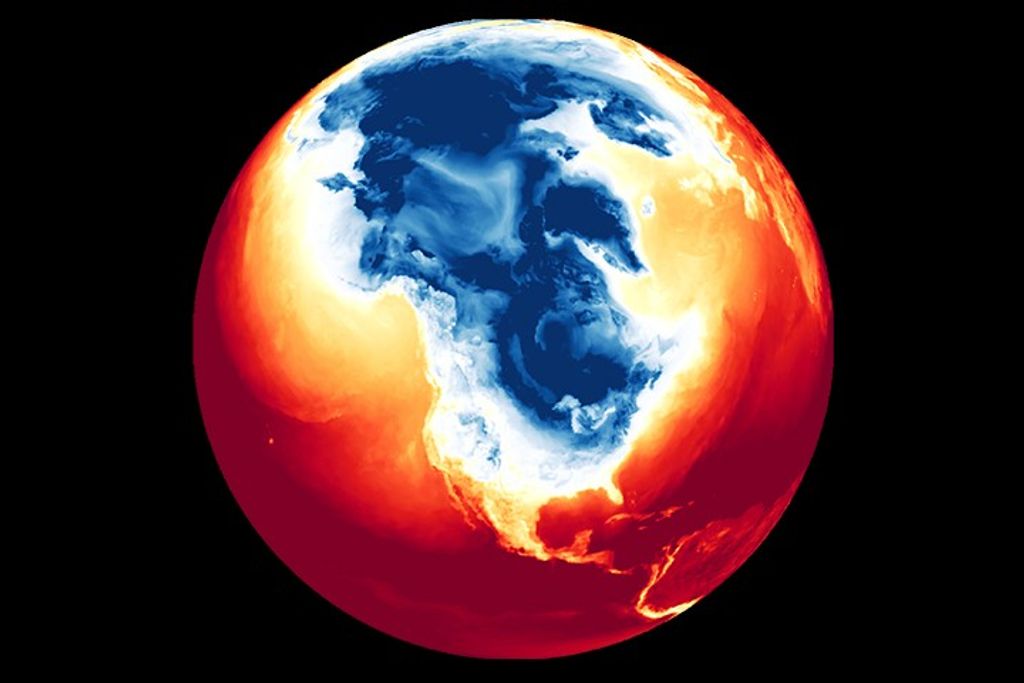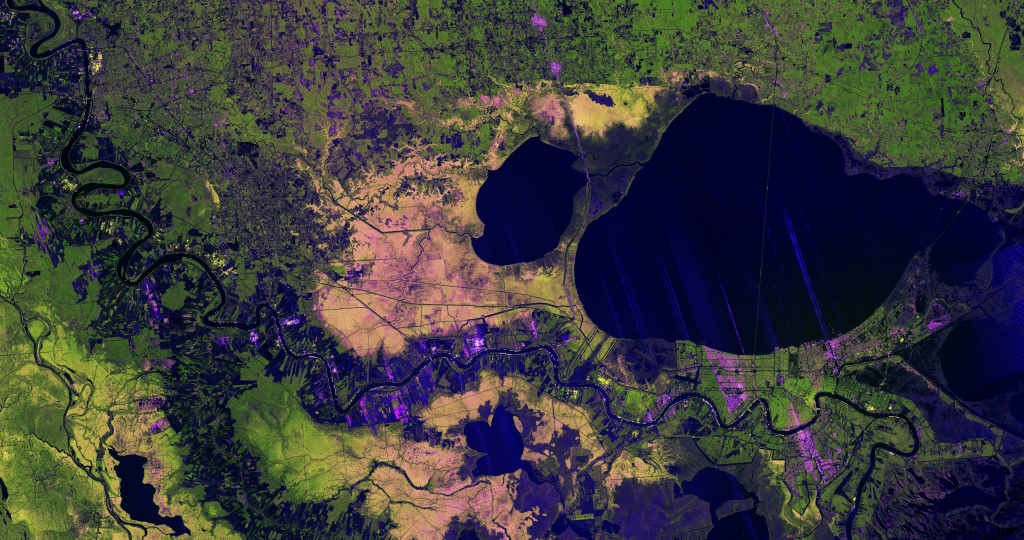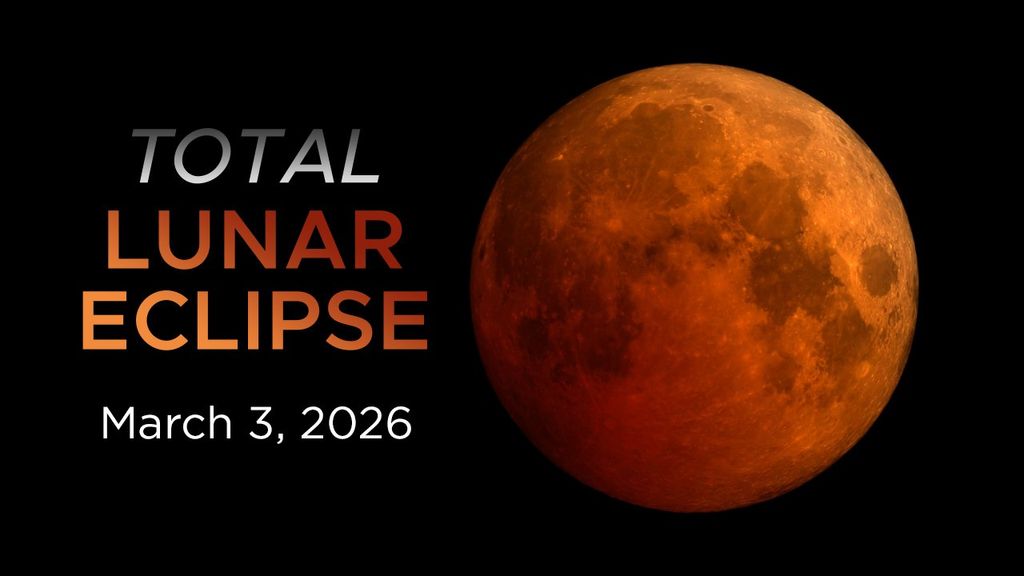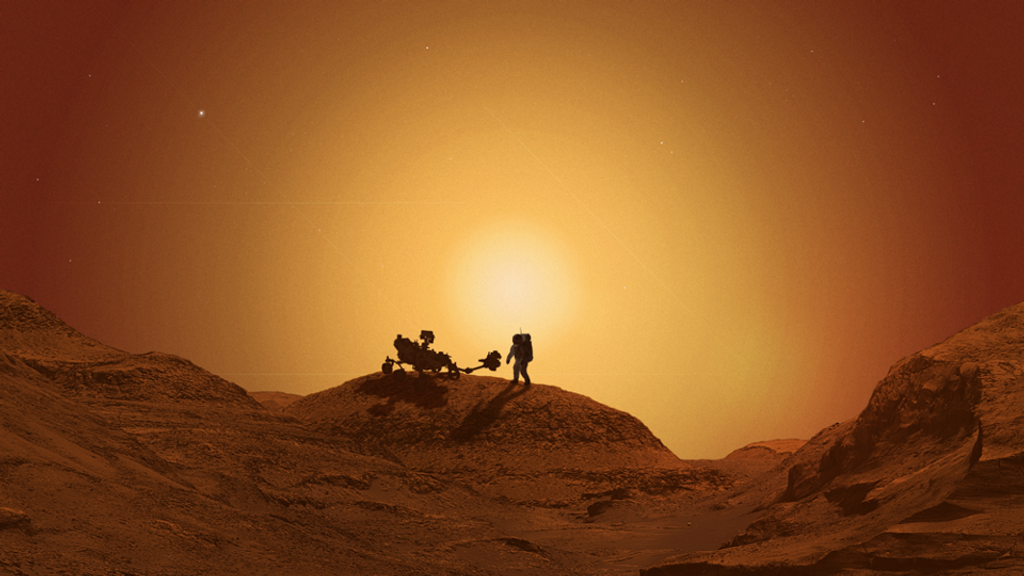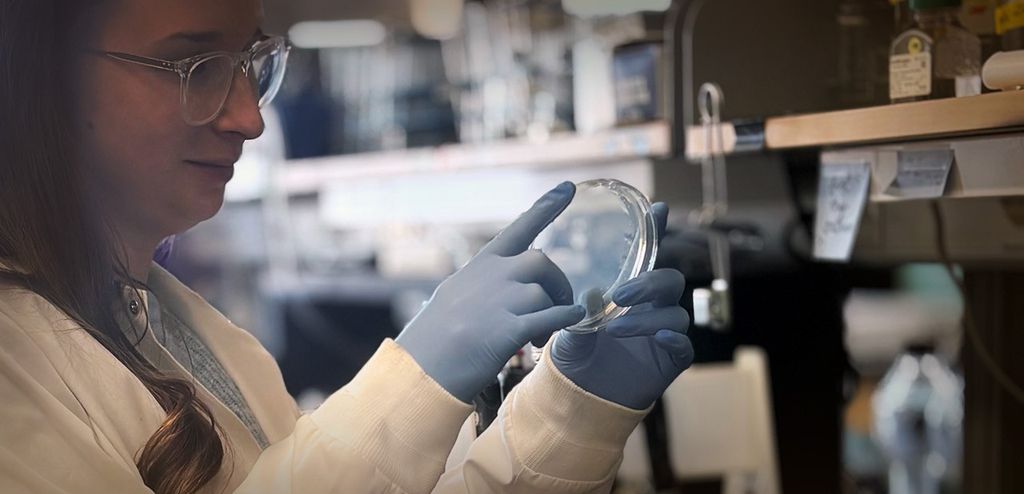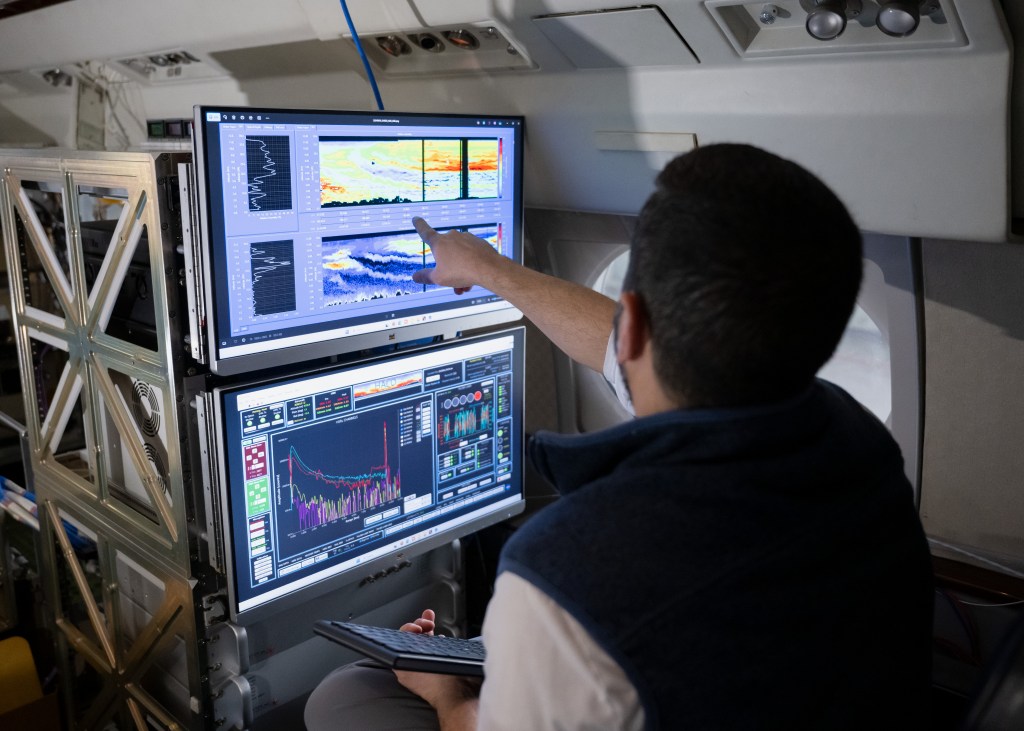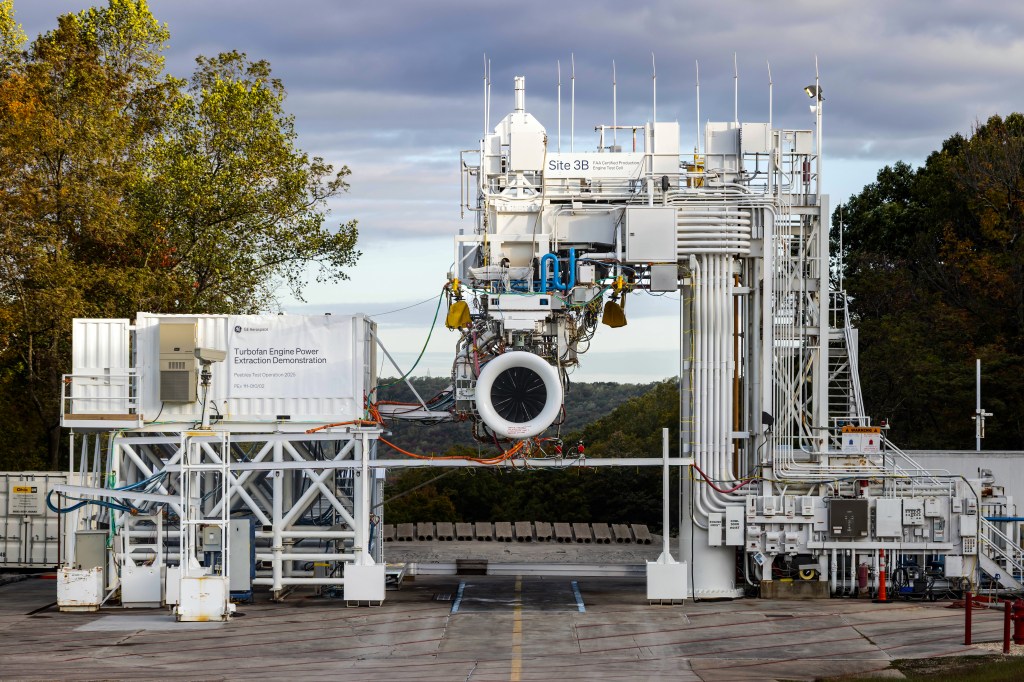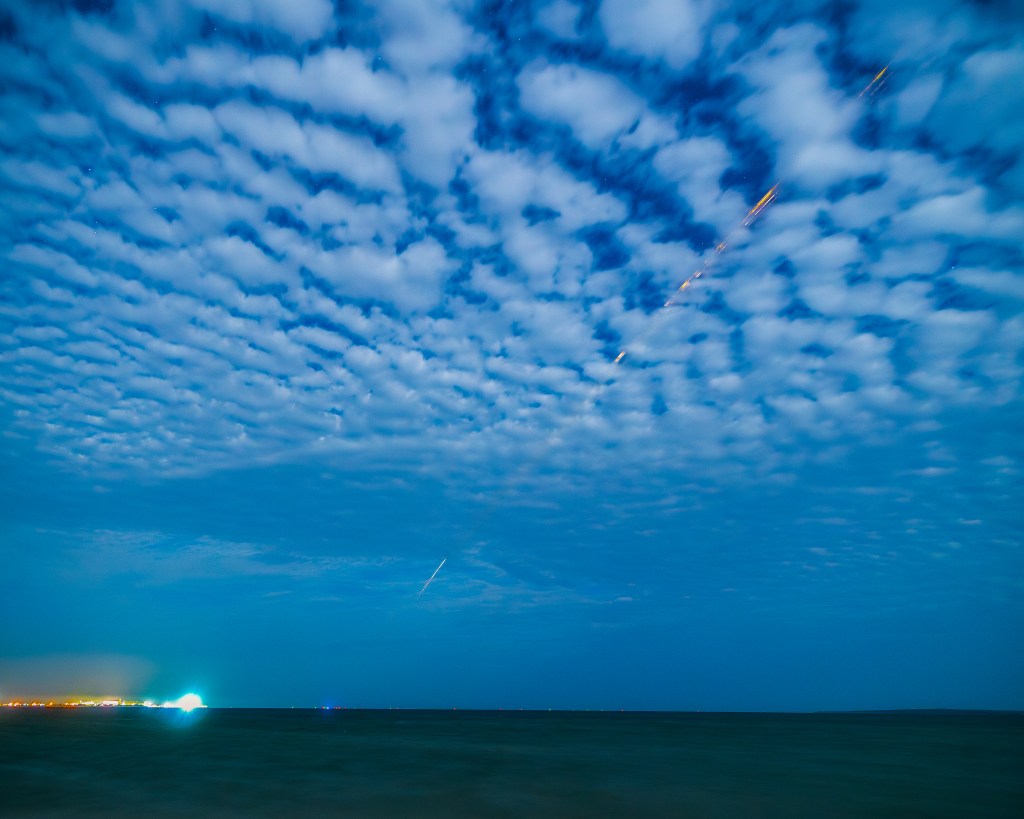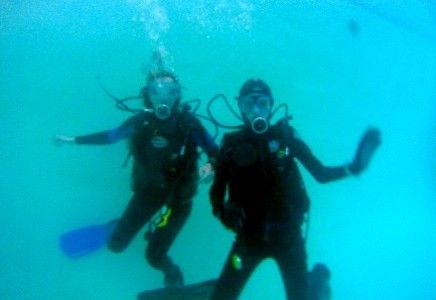
Kathleen Mandt
Planetary Scientist - Southwest Research Institute (SwRI)
Contents
- Where are you from?
- Describe the first time you made a personal connection with outer space.
- How did you end up working in the space program?
- What is a Planetary Scientist?
- Tell us about a favorite moment so far in your career.
- Who inspired you?
- What advice would you give to someone who wants to take the same career path as you?
- What do you do for fun?
- If you were talking to a student interested in science and math or engineering, what advice would you give them?
- Read More
- Links to Videos, Stories, etc.
- Where are they from?
Where are you from?
I was born in Denver, Colo. and grew up in Broomfield (near Boulder) — a city which was a small town, but has grown a lot in the past 20 years.
Working in planetary science is an opportunity to go beyond a single discipline and immerse oneself in a range of scientific studies without limits!- Kathy Mandt
Describe the first time you made a personal connection with outer space.
The first launch of the Space Shuttle occurred when I was in elementary school. I was so excited about this event, and when I later saw the astronauts in space I wanted to join them. Since I have asthma, I cannot qualify for the astronaut program, but as a planetary scientist I have the opportunity to explore our solar system on a daily basis.
How did you end up working in the space program?
I took a very non-traditional path into the space program. After high school I joined the military to earn money for college and to take advantage of the G.I. Bill. While stationed in Japan I met and married my husband, and after seven years of service I separated from the military. My husband remained on active duty for 20 years, so I followed him wherever his career took us. When we were assigned to the U.S. Embassy in Sofia, Bulgaria, I began to take courses through a distance program with the University of North Dakota in order to obtain my Master of Science in Space Studies. (This distance program caters to military members and their family.) It was through this program that I had my first opportunity to be a part of planetary research. For my thesis I studied the geologic origin of the Medusae Fossae formation on Mars. After returning to the U.S., I was given the opportunity to work as a graduate student for Hunter Waite with the Cassini Ion Neutral Mass Spectrometer team at Southwest Research Institute. This has been an amazing opportunity.
What is a Planetary Scientist?
Planetary scientists are difficult to define. In fact, as a survey (see below) recently conducted by the American Astronomical Society Division for Planetary Science (AAS-DPS) shows, we describe ourselves in a variety of ways. Since planetary scientists study entire planets, we need to have an interdisciplinary understanding of science. We typically specialize in one area, such as atmospheric science or geology. However, we have to understand the interactions between atmospheres and surfaces, chemistry, and the physics occurring beyond a planet’s atmosphere. Working in planetary science is an opportunity to go beyond a single discipline and immerse oneself in a range of scientific studies without limits!
Tell us about a favorite moment so far in your career.
I have had a lot of wonderful experiences, even though I’ve only been working in planetary science for a short time. Conferences are a great opportunity to share your work and meet people who you admire for their work. The most enjoyable conference that I’ve attended was the AAS-DPS annual meeting which was held in Nantes, France. I had the opportunity to meet Daniel Gautier, a well-known scientist who championed the Cassini mission in its early days. It was an honor to discuss my research with him and find out that he was interested in the work that I am doing as a planetary scientist.
Who inspired you?
One of the most inspirational people I’ve encountered since beginning work in planetary science is Susan Niebur. I never had the opportunity to meet her in person, but we had several exchanges by email. She was devoted to building a community for women within planetary science and her work has inspired me to carry on through challenging times, and to help other women, and early career scientists (young men included), to achieve their greatest potential.
What advice would you give to someone who wants to take the same career path as you?
Because I took such a non-traditional path, I hope to serve as an example to others who may feel that they are too old to go after their dreams. It took me 20 years to complete my Ph.D., but I had the opportunity during this long journey to spend time at home with my children while they were young. Delaying my career because of family constraints didn’t end my career opportunities. Others who have made the same choices should know that there are still opportunities available to them to achieve their goals.
What do you do for fun?
My two teenagers are my pride and joy. I love watching my daughter play volleyball and I enjoy going scuba diving with my son. I also like watching the videos my son makes, including a commercial for our local scuba diving shop. On my own, I like to read and play piano.
If you were talking to a student interested in science and math or engineering, what advice would you give them?
Pursuing a career in science, math or engineering is very challenging. There is, of course, the intellectual challenge involved with learning math, science and engineering, but there are other challenges as well. As a scientist, communication is very important. For example, I can make the most amazing scientific discovery, but it will never bear fruit unless I am able to communicate this discovery to other scientists through oral presentations and written publications. It is also very important to share our research with the public. Our work is, ultimately, a public service intended to improve education and quality of life for our society. My advice to a student interested in math, science or engineering is to focus your energy on learning to communicate well because it is a vital skill for success in this field.
Read More
Kathy’s Women in Planetary Science Interview: “A Nontraditional Start”
Cassini Ion Neutral Mass Spectrometer Website
The American Astronomical Society Division for Planetary Science (AAS-DPS) Survey
Links to Videos, Stories, etc.
“NASA Research Estimates How Long Titan’s Chemical Factory Has Been in Business”
“SwRI Scientists Assess Age of Titan’s Organic Atmosphere”
“Is Saturn Moon’s Haze Old Enough for Life?”
“Methane on Titan and Enceladus: Nature vs. Nurture?”
Where are they from?
Planetary science is a global profession.


